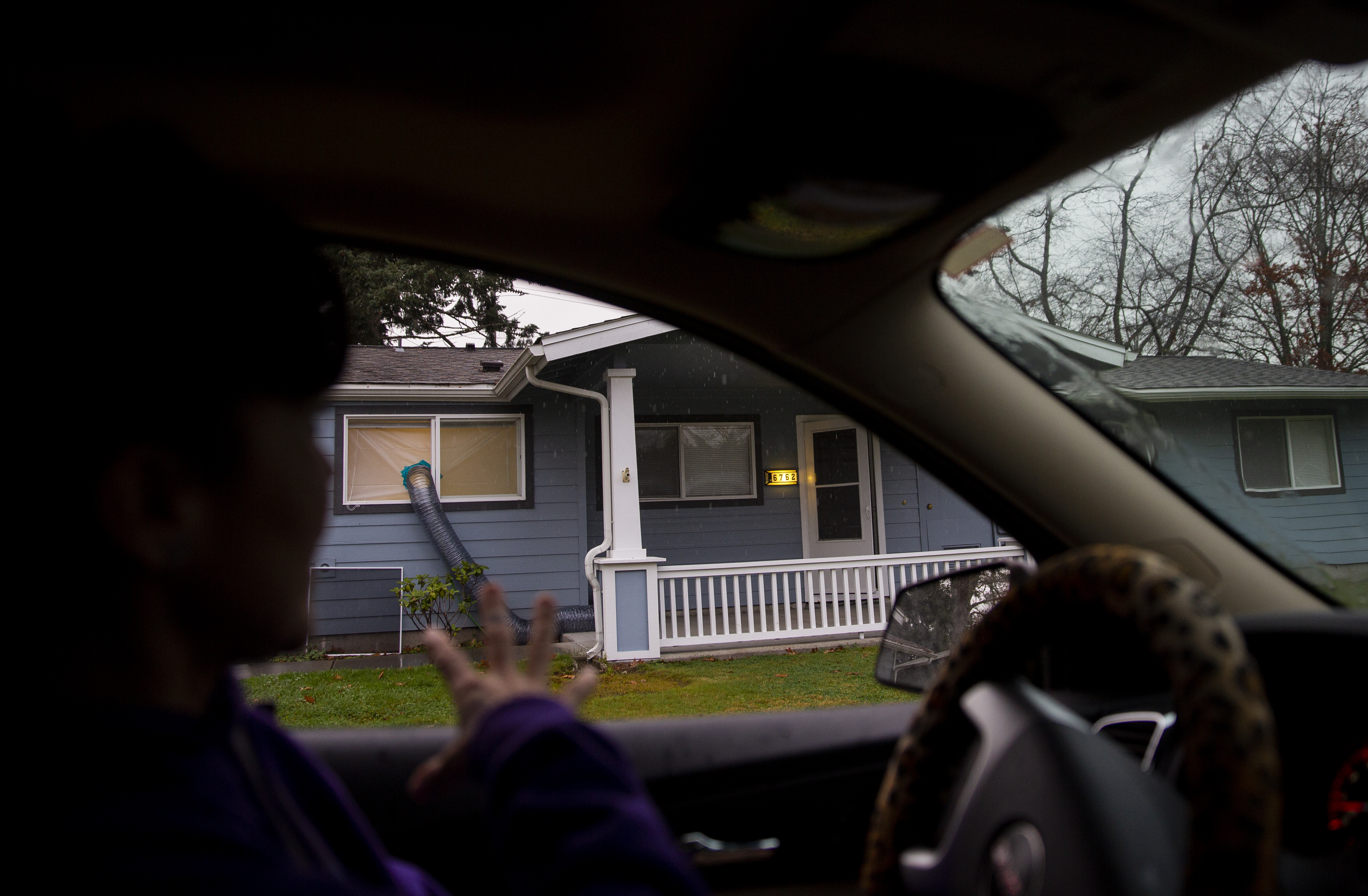By September 2018 she was beginning to experience breathing problems. “I’m not a sickly person so it was kind of different, I thought maybe it was due to a new environment,” she told Crosscut. She called Lincoln Military Housing (LMH), the private contractor that manages housing at Joint Base Lewis-McChord and several other bases around the country. “They said, ‘It’s allergies, Melissa, you’re fine; it’s not the house.’ So I decided, they say it’s not the house, so it’s not the house. I left it alone.”
By November 2018 she was diagnosed with lung infections — she had pneumonia with acute bronchitis. “That was very different because I’m also an athlete. I was an amateur female boxer so I trained vigorously,” she said. “[I] didn’t have time for lung infections, never really got them.” Her children also began having lung and breathing problems. Her 4-year-old was diagnosed with bronchitis twice. The same month she found water pooling underneath their sink. She called LMH again.
“They were looking for that leak but then they accidentally found water pooling in the wall behind the fridge, so that was an accident. They didn’t mean to find that, and they weren’t even looking for it. … The insulation was drenched,” she said. Godoy said she asked the repairmen how long they thought the water might have been there, but they had no idea.
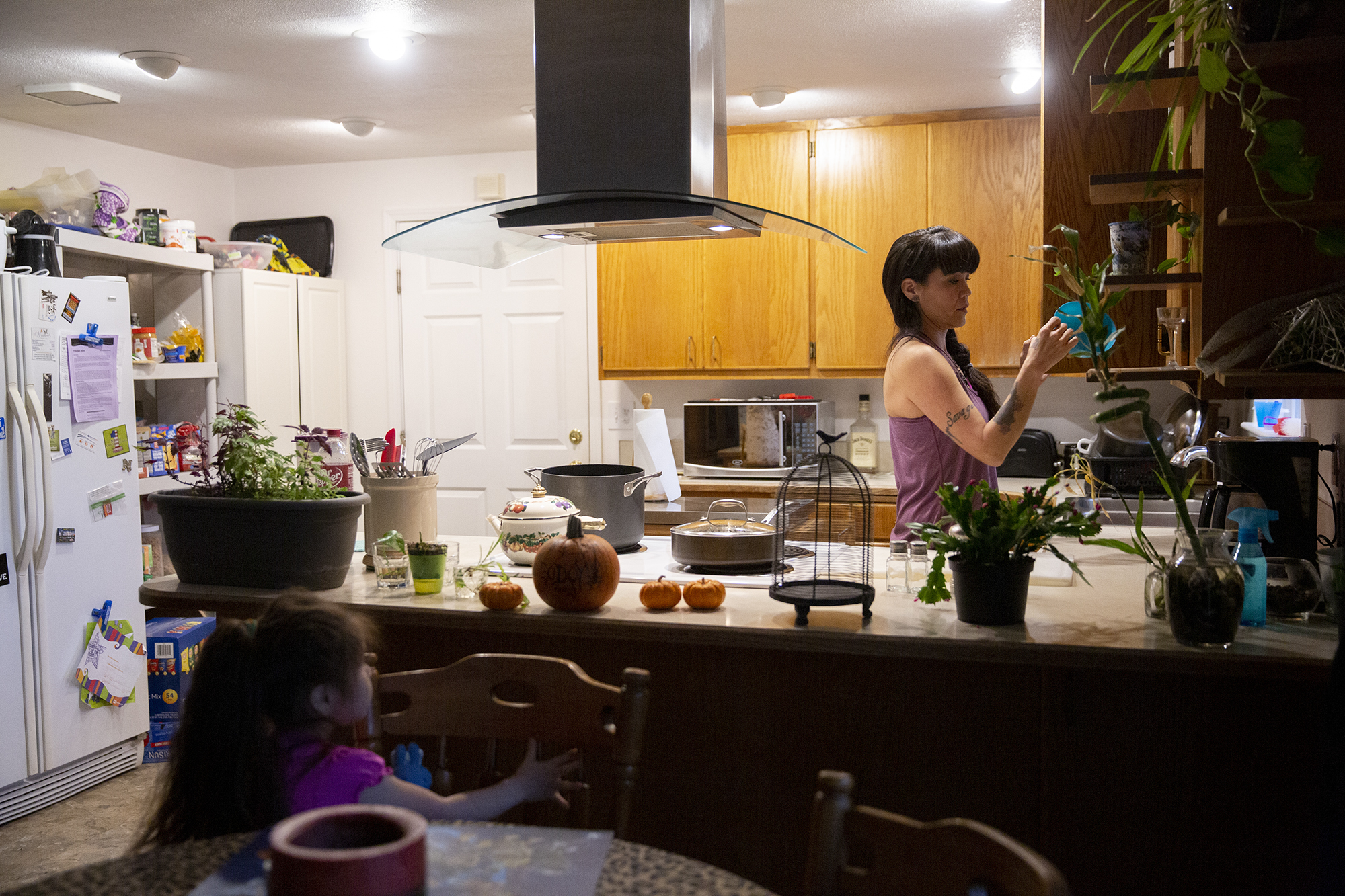
When the workers returned to replace the insulation, Godoy asked if they looked for mold. She said they told her not to worry about it. They conducted a moisture test and determined there was no issue. “I told them I can show you where there’s moisture, I need you to check for mold,” recalled Godoy. “They did not.”
Months later Godoy lost patience and tore open the walls herself and found black mold in her bathroom. She took to social media and quickly discovered that other JBLM families were having similar experiences. In fact, dozens of JBLM families have been living in hotels as the Army wrestles with mold and water damage in homes across the base.
JBLM isn’t the only base experiencing these kinds of problems. Mold, high levels of lead and other problems have recently surfaced in bases around the country, leading to congressional hearings and calls for reform.
An Army investigator general report that looked at JBLM and other facilities between February and March of this year found that housing inspectors often didn’t look into “life, health or safety” items, such as mold or electrical issues, when residents asked them to. The IG report, released in September, also found that residents worried about facing reprisals if they raised concerns or complained. Many who did, it noted, reported “additional move-out fees, fines due to yard maintenance and other discrepancies, and threats to call or involve the chain of command.”
In a written statement to Crosscut, JBLM officials said: “In conjunction with a [Department of Defense-wide] review of on-base privatized military housing in February, JBLM leaders and our partner, Lincoln Military Housing, assessed 5,159 homes on JBLM. We identified and addressed reported problems, and in some cases, families were moved into temporary accommodations if repairs required more time.”
It has been more than 20 years since Congress approved the Military Housing Privatization Initiative, a move that was supposed to reduce burdens on military planners by opening the door for private companies like LMH to take over residential management at bases across the country.
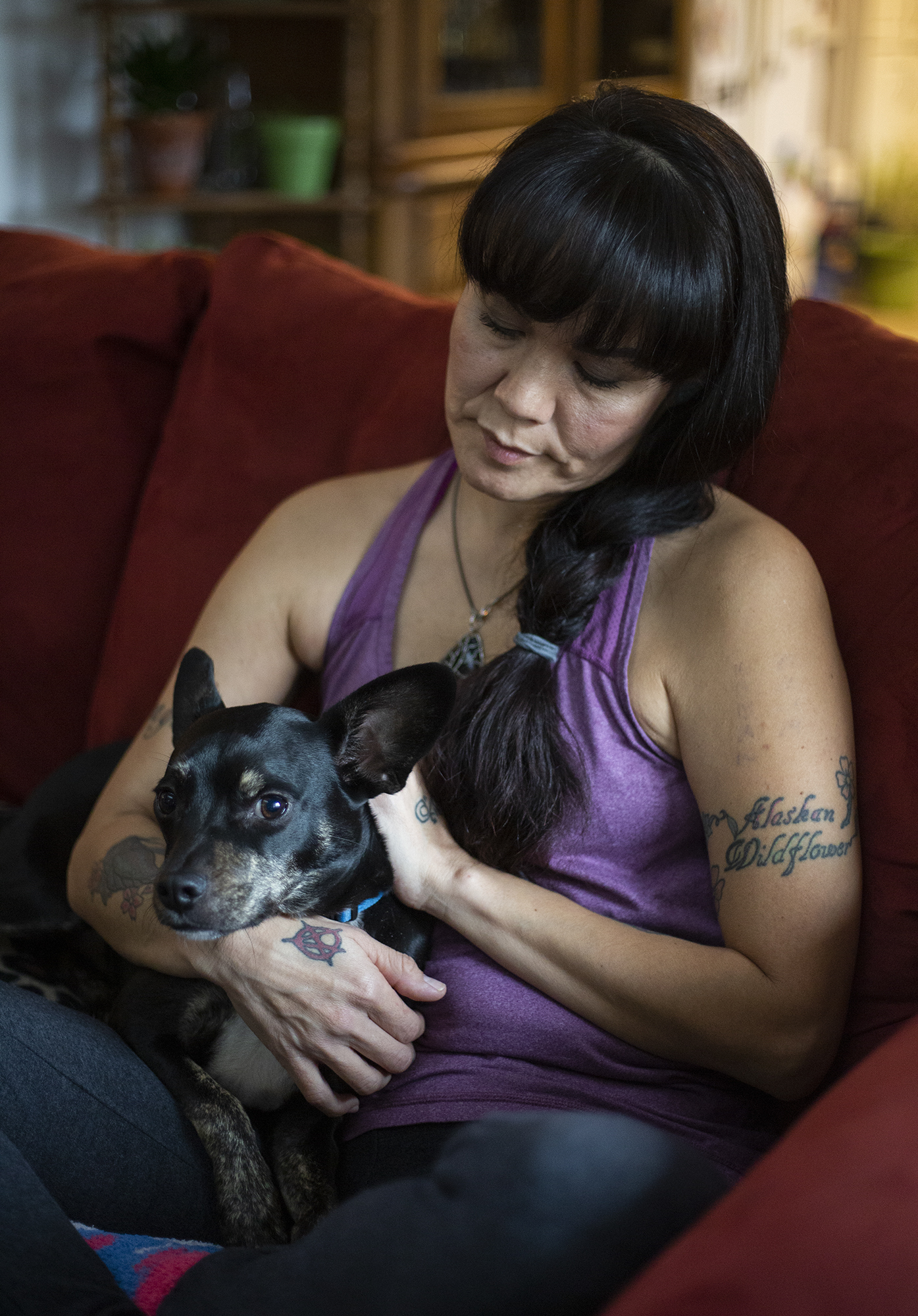
Advocate and military spouse Leigh Tuttle points at that decision as a possible turning point. “My worry is that through the contracting process, the Army essentially sold their soul to the devil for 50 years,” she said.
Tuttle recently relocated to the Tacoma area when her husband transferred to JBLM, but she moved her family into off-base civilian housing after she had similar problems with mold and health problems while living at a previous military installation. She has testified before Congress and regularly takes to social media to speak out on housing and other issues impacting military families. She said it’s not just about the health of individuals at stake, but potentially severe impacts on military readiness.
“JBLM is a hub for special operations, and we are still a nation at war. Soldiers who are deployed to theater should never have to worry about their loved ones living in a hotel room for weeks on end due to the negligence of privatized housing,” said Tuttle. “The Army needs to take a strong and meaningful stance against these companies that are harming our soldiers and families, and to prove they do care and to rebuild a sense of community.”
In January 2019, Godoy still had bronchitis. By that time military leadership had gotten more involved. During a visit by leaders from her husband’s unit, housing maintenance personnel were present, and Godoy asked them to look for mold. A maintenance specialist checked the crawl space, came back and reported that there was an improperly installed shower drain. It was fixed the same day. Godoy asked him if he saw mold, and he told her he hadn’t looked and to call housing if she had other concerns.
She did. Godoy went directly to the housing manager and complained that the staff had dismissed and ignored concerns about mold, despite repeated documented instances of water buildup from bad plumbing. She said the manager insisted again that there was no mold and told Godoy to talk to a doctor instead of housing personnel about her symptoms.
By summer she and her children were still sick. “My doctor was really concerned about my toddler,” she said. Doctors asked her if she had mold in her house, telling her that could potentially explain the symptoms. “I told them I don’t know. Housing says there’s not,” Godoy told Crosscut.
Godoy said she was rapidly losing weight, up to 5 pounds a month. She found herself in the emergency room and urgent care several times. She got tested for cancer and the test came back negative. “We couldn’t find an explanation for why I was losing so much weight and why I couldn’t eat anything,” said Godoy. “It really scared my husband and me because I would cry every day, thinking to myself, ‘Why am I so sick? How can I go from this CrossFit, boxing athlete to this withering away woman?’”
In July she asked maintenance to come to her house again. They told her they found nothing. “I just decided to look for myself,” Godoy said. She grabbed a flathead screwdriver and hammer and began to peel off wood paneling in the bathroom near the shower. She quickly found grayish shading in the wall. She said that when she turned over the wood panel in her hand “there was black fuzzy spotty stuff all on the inside of it. … I found it, I found out why me and my family are so ... sick.”
She continued pulling off panels, finding more mold. “Same thing, black stuff, all inside of it,” she said. She then noticed a piece of tile at the base of the shower that was abnormally white. “They had painted over it,” she said. “It looked like mildew was coming through the paint.” She decided to pry that loose too, and said she found black, wet fuzz inside. “It was covered in toxic mold,” she said.
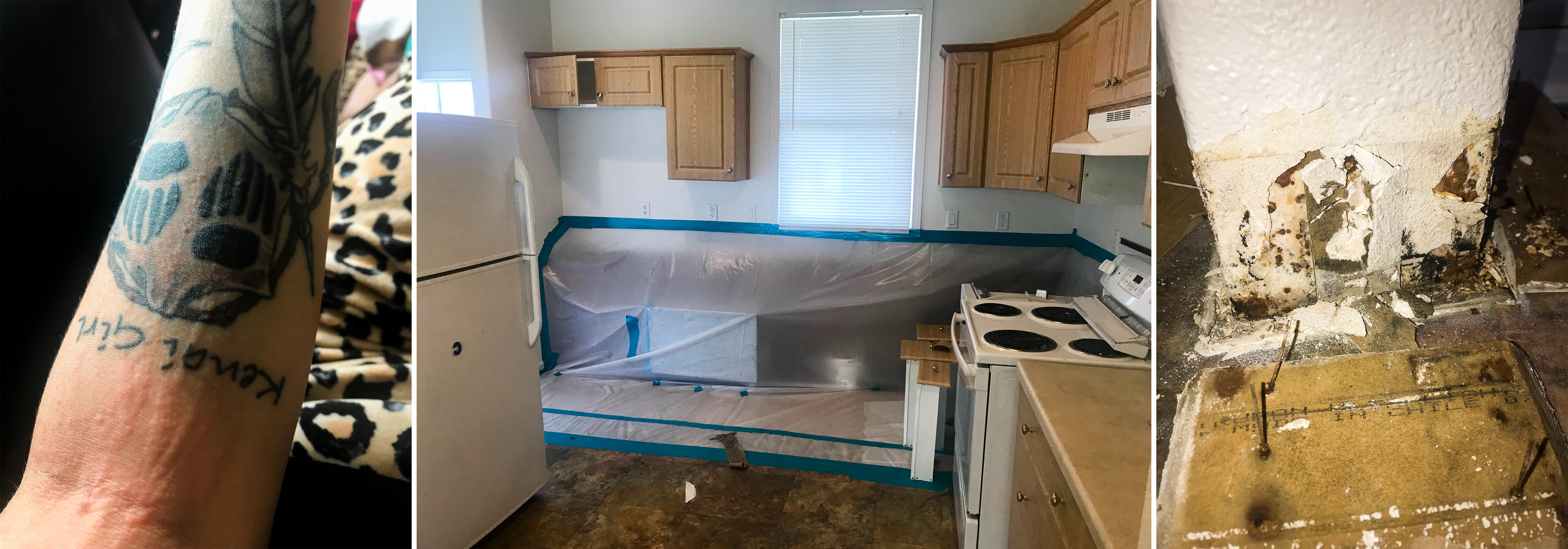
She called LMH and recorded the walkthrough on her phone. She demanded to know how they could miss the mold for months even as she specifically asked them about it. “They put us in a hotel within the hour,” she said. She posted video and people began reaching out. Godoy started a Facebook group called Lincoln Military Housing Toxic Homes – JBLM. It soon grew to over 1,000 members. She began to receive messages from other families reaching out to her with reports of breathing problems, rashes and other issues. Some asked her to look through their houses as she had her own.
She started doing walkthroughs with families and pulling up boards. She said that within just the first week she found mold in 26 houses. “[We] found really high levels of toxic mold in their houses,” she said. They began posting videos and sharing resources on how to find mold. Other families began tearing out panels and tiles to look for mold. They also reached out to local TV stations.
LMH released a statement in August calling it an “alarming development” that “some homes have been deliberately damaged during this time.” The statement went on to assert that “these actions are not only a safety risk for residents who are not construction or maintenance professionals, they are a violation of lease terms and a violation of law. Because of these and other considerations, we will take necessary action to ensure the health and safety of families, our employees and to prevent further damage to Lewis McChord Community homes.”
In another statement released in September, LMH announced it had updated operating procedures and increased staffing. But it also noted that LMH had “retained a third-party mold remediation expert to review our protocols and procedures to ensure best practices and customer satisfaction, and they found that our current processes exceed industry standards EPA guidelines, we have provided a copy to our government Partners [sic].”
An employee with LMH who asked not to be identified told Crosscut that mold is a particularly challenging issue, as neither the Foof and Drug Administration nor the Environmental Protection Agency have guidelines on how much mold is dangerous or how to test for it. In fact, some state governments, including California’s, recommend against indoor mold testing on grounds that it can create false positives. They recommend moisture testing instead. The employee noted that the aging homes and Washington’s wet climate make combating mold even more difficult.
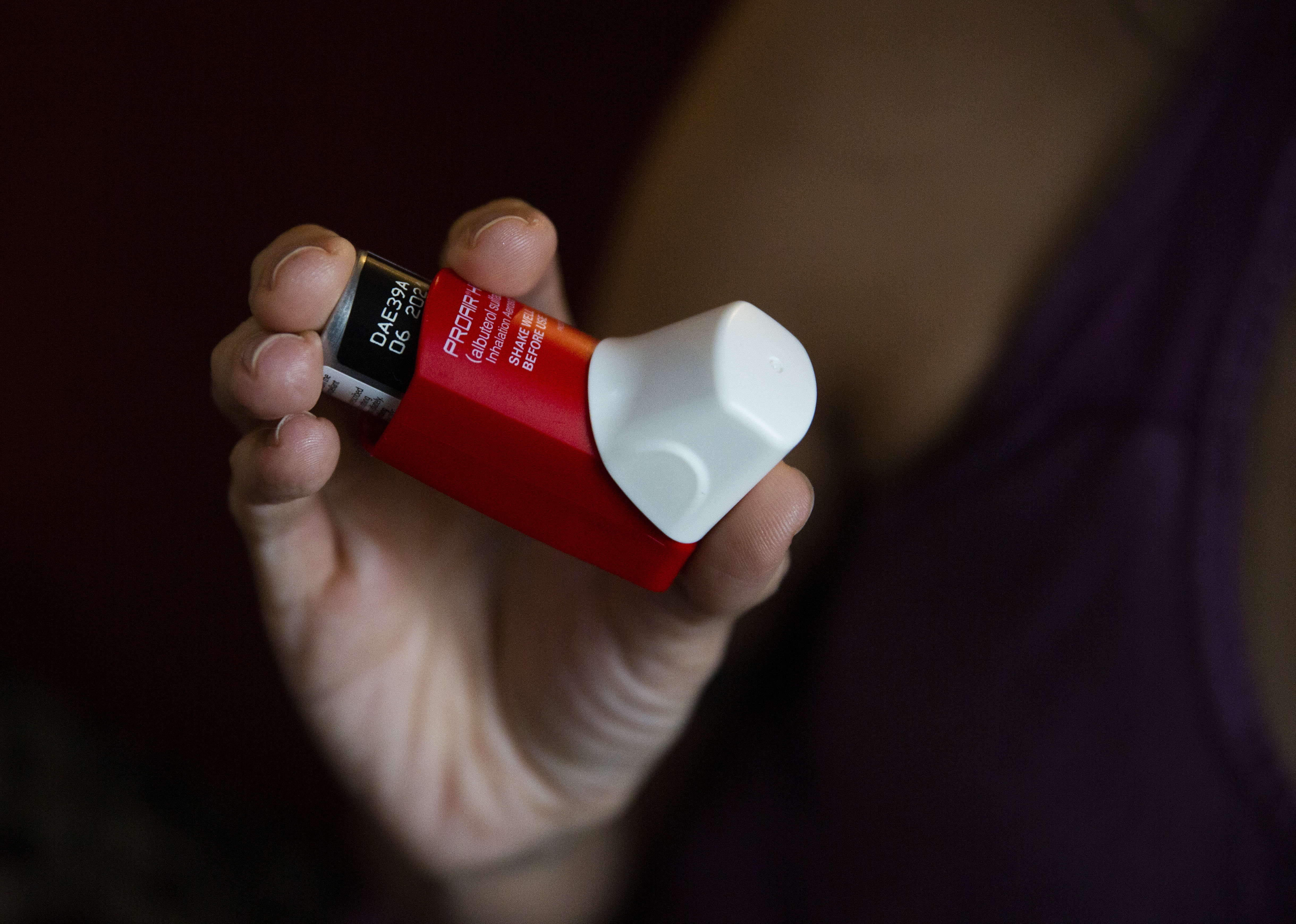
The Army itself has little guidance on mold, but a fact sheet from the Navy and Marine Corps Health Center notes that “there is no health standard to which to compare mold sampling results. Also, mold is ubiquitous; it is everywhere — outside and inside. If mold sampling were to be done, mold will be found most anywhere. The mere presence of mold does not necessarily mean that there is a problem or that occupants will be exposed or will have adverse health effects.”
Godoy is now taking LMH to court, represented by attorney Sonny Nguyen of Federal Way-based Park Chenaur & Associates. Several JBLM families are joining her, including Vanessa Strother's. Strother said that during the three years she lived in a home at JBLM she and her children experienced severe respiratory and gastrointestinal symptoms that regularly took them to the hospital. She came to Washington after her husband, an artilleryman, transferred to JBLM from Texas. Strother has asthma, but was an avid runner in Texas and rarely had serious symptoms. Like Godoy she initially attributed it to a change in climate.
As she settled into the house, she began rapidly gaining weight, despite maintaining that she kept up a similar diet and exercise schedule. She began getting serious migraines. She also started suffering from increasing heartburn and had difficulty swallowing food. On one occasion while her husband was deployed, she began choking on food and needed to seek help from a soldier next door who performed the Heimlich maneuver on her. Food still remained in her digestive tract, and she had to go to the ER to have it dislodged.
Her doctors told her that her symptoms were consistent with either food or environmental allergies. She had never had food allergies before, and testing suggested her problem was not fundamentally dietary.
Her children also experienced problems. Her son had skin rashes, seriously swollen tonsils and was seemingly unable to gain weight. “His throat was swollen so bad it was changing his voice,” said Strothers. “He was having trouble swallowing things and it was taking him over an hour to eat.” Her infant daughter has had multiple respiratory infections and has been taken to the ER.
Strothers said she began to seriously consider that the house was making her and her family sick after she talked with Godoy, who told Strothers about her own experiences. “Now that we have been out of the house the swelling has gone down,” Strothers said. “Now that I’ve been out of the house I haven’t been having any headaches, I haven’t been having any of my GI problems, absolutely nothing.”
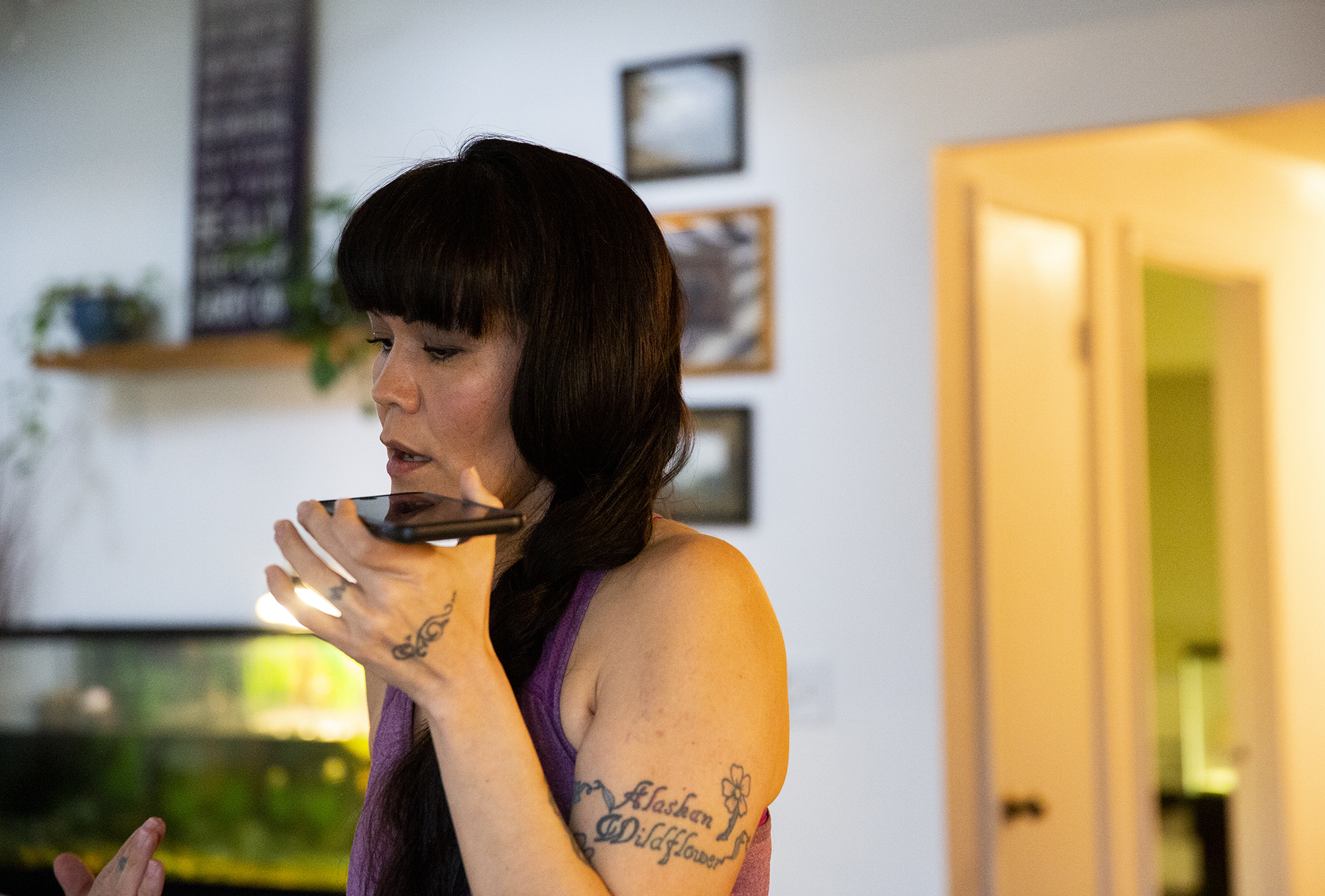
Strothers lived in a hotel for most of August. She has since returned to base housing, in a new home. But all of the family’s furniture and belongings remain at their old house. She worries that they may have mold spores. She said the specialists that LMH has sent to test those belongings have said there’s no mold. She finds that suspicious, she said, arguing that even at safe levels the testing should find some mold.
“Since August, the number of displaced JBLM housing residents has gone up,” JBLM acknowledged in its written statement. “We believe this is a result of LMH being much more aggressive in their maintenance and remediation actions.”
The JBLM statement added that LMH pays for a displaced family's temporary lodging and meal expenses of up to $30 per person per day. “Placing families in temporary housing is a standard practice, and it's the right thing to do to support our military families,” the JBLM statement asserted. “While we recognize this is above the service level you would typically encounter when renting a house in any other part of the state, [LMH] supports this program wholeheartedly.”
In another case, a military spouse living in a hotel with her two teenage children said LMH has promised to pay for their rooms, but that it will reimburse them after the stay.
“Top brass at JBLM cannot deny there is a systemic problem plaguing military housing. They are well aware that families are suffering,” said Tuttle. “Garrison hosted town halls, sensing sessions, for residents and I met with the garrison commander on April 10, 2019, to advocate for families experiencing hardships due to housing.”
But as time goes on military families are becoming more vocal. “A lot of people were scared to do what we’re doing now because of retaliation,” said Godoy. “That was something I wanted to demolish. And I did.”
